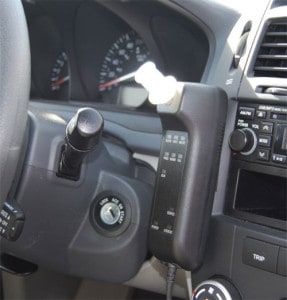 We talk about ignition interlocks a lot here at Car Breathalyzer Help. In fact, ignition interlocks are our business. But what exactly are they, and how do they work? In today’s post we’ll go over some ignition interlock basics. Next week, we’ll talk about why these devices are so essential in the fight to eliminate drunk driving.
We talk about ignition interlocks a lot here at Car Breathalyzer Help. In fact, ignition interlocks are our business. But what exactly are they, and how do they work? In today’s post we’ll go over some ignition interlock basics. Next week, we’ll talk about why these devices are so essential in the fight to eliminate drunk driving.
What are they?
Ignition interlocks, or car breathalyzers, are small devices installed in a vehicle to prevent drinking and driving by measuring how much alcohol, if any, a person has in their system before he or she starts the car.
How do they work?
Interlocks are designed to measure one’s blood alcohol concentration (BAC) level. Before starting the vehicle, the driver must blow into the device. If the driver’s BAC is below the pre-programmed level, the car will start. If not, the device prevents the car from starting. Drivers must also submit a breath test periodically while driving. If the driver fails the test, the device will not turn off the engine but signal the driver to stop. All breath samples are sent to the court, DMV, and/or other departments who ordered the installation.
Who needs them?
Many convicted drunk drivers in most states are required to install the device as part of their sentencing. Only 20 states currently require interlocks for all convicted drunk drivers while most other states only require them for repeat offenders. Some states require interlocks for first-time offenders only if their BAC at the time of the offense was above a certain limit, usually 0.15.
However, anyone can install an interlock in their car voluntarily. Some do so to protect themselves and others by preventing themselves from driving after drinking while some parents will install the device in their teen driver’s car to prevent underage drinking and driving.
How much do they cost, and who pays for them?
Installation typically costs between $70 and $250 with a monthly cost of about $60 to $90. These costs are paid for by convicted drunk driving offenders ordered to install the device or anyone who volunteers to install the device in their vehicle. Some states have a fund set up for offenders who are ordered to install the device but cannot afford it.
To learn more about ignition interlocks or purchase an interlock for your vehicle, visit www.lifesafer.com.
